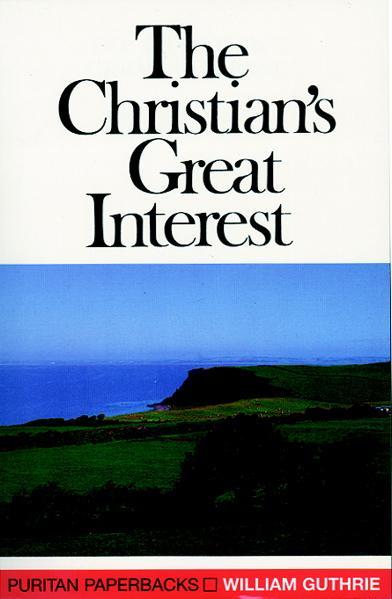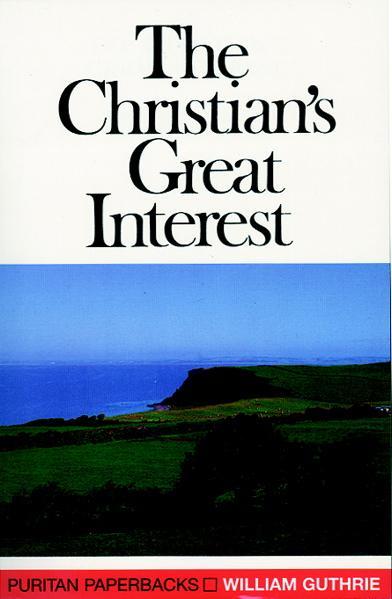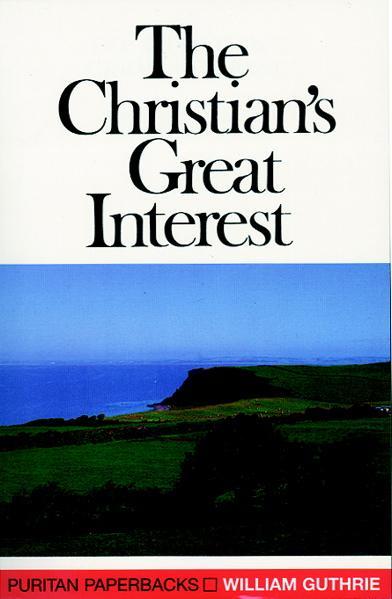The Christian's Great Interest (Puritan Paperbacks)
Guthrie, William
All of Guthrie’s teaching and pastoral experience were poured into The Christian’s Great Interest – his only book. The remarkable fact that is has gone through more than eighty editions and been translated into several languages testifies to its value. This book describes in a clear and attractive style what it means to be a Christian, and how to become one.
This book is all about Christ: the Christian’s great interest should be Christ; the unbeliever needs to develop an interest in Christ. It describes in a simple, clear, and attractive style what it means to be a Christian, and how to become one.
Preaching on Revelation 22:2, C. H. Spurgeon once said:
“Our Lord Jesus Christ is life from the dead, and life to his own living people. He is All-in-All to them. And by him and by him, alone, must their spiritual life be maintained…Jesus Christ is a Tree of Life and we shall so speak of him in the hope that some may come and pluck of the fruit and eat and live forever.”
This too, is Guthrie’s purpose. In the first part, he looks at how someone is drawn to Christ, what the evidences are of true saving grace, and the difference between a true Christian and a hypocrite. In the second part he describes how to ‘close’ with Christ, and deals with various objections, difficulties, and doubts.
-
Cover Type
-
ISBN
-
Page Count
-
Publisher
-
Publication Date









